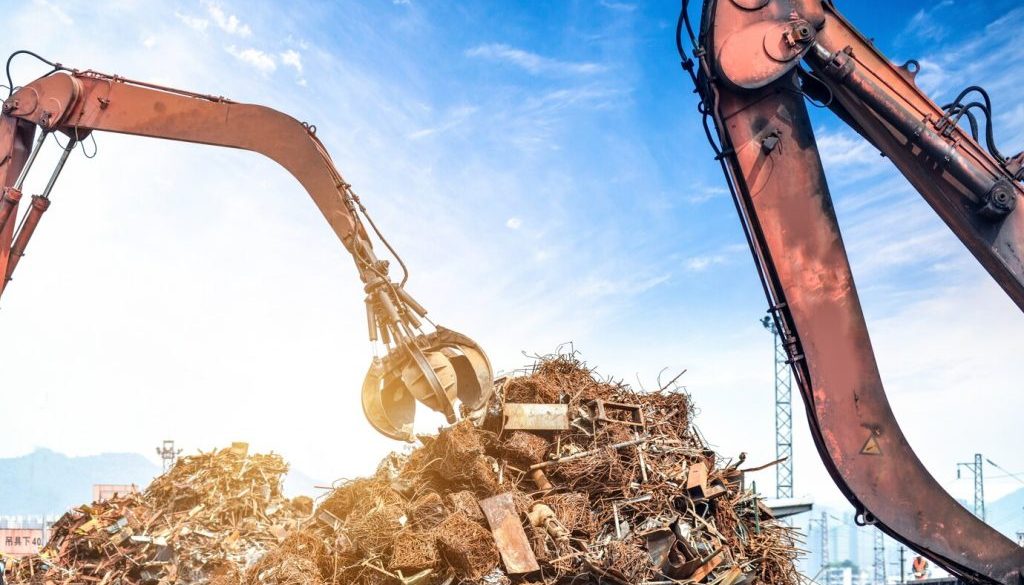Efficient on-site waste management is crucial for maintaining a tidy, safe, and productive construction site. As the construction sector continues to focus on increasing sustainability and reducing environmental impacts, ensuring proper waste disposal practices is more important than ever. Enviro Skip Hire, a family-run skip hire and aggregate company servicing Staffordshire, offers expert advice and customised solutions to support construction projects with tailored waste management services that prioritise environmental responsibility and operational efficiency.
This detailed guide will explore various strategies for effective on-site waste management in construction projects, covering aspects such as waste reduction, recycling, waste segregation, and skip hire best practices. We will also highlight the benefits of partnering with a professional waste management provider like Enviro Skip Hire to ensure a streamlined waste disposal process that aligns with your project goals and sustainability initiatives.
Key Strategies for Effective Waste Management in Construction Projects
To achieve efficient on-site waste management, consider implementing the following practices:
- Waste Reduction: Minimise construction waste generation by implementing lean construction methods and sourcing materials that produce less offcuts or packaging rubbish. Additionally, consider using prefabricated or modular components that reduce on-site waste production.
- Recycling: Adopt a recycling-focused mentality and segregate recyclable waste materials, such as metal, wood, and concrete, for reprocessing. Further, collaborate with recycling companies, ensuring a substantial portion of construction waste is recycled and repurposed.
- Reuse: Promote the reuse of construction materials, such as framework, bricks, and insulation, whenever possible. This approach can reduce waste generation while lowering material and disposal costs.
- Site Organisation: Maintain an organised and tidy construction site by designating specific areas for waste storage, recycling, and disposal. This reduces safety hazards and facilitates efficient waste management.
Vital Role of Waste Segregation in Optimising Waste Management
Waste segregation is the process of separating different types of waste materials on-site, enabling efficient recycling and disposal. Key benefits of waste segregation in construction projects include:
- Enhanced Recycling: Segregating waste materials allows easy identification of recyclable materials and promotes higher recycling rates, reducing the overall environmental impact of the project.
- Cost Savings: Proper waste segregation can lead to cost savings by reducing disposal fees associated with mixed waste and increasing the revenue from recyclable materials.
- Compliance: Adhering to local waste disposal regulations by segregating waste materials demonstrates due diligence, reducing the risk of penalties and helping your construction project remain compliant.
- Site Safety: A clean and well-organised site, with designated waste disposal areas, reduces the risk of accidents linked to improper waste management.
To segregate waste effectively, train your construction team about the benefits of waste segregation, provide clear instructions on material separation, and ensure designated waste storage areas are easily accessible and labelled.
Advantages of Skip Hire for On-site Waste Management
Hiring skips for waste disposal on construction sites offers several benefits:
- Ease of Use: Skips provide a central, easily accessible location for the disposal of waste materials, streamlining on-site waste management.
- Efficiency: Skip hire allows a construction project to dispose of waste materials in bulk, reducing the time, effort, and cost associated with transporting waste to off-site disposal facilities.
- Tailored Solutions: Professional skip hire providers like Enviro Skip Hire offer an extensive range of skips to suit varying waste disposal requirements, ensuring a solution is available to cater to your specific construction project needs.
- Environmental Responsibility: Skip hire companies that prioritise responsible waste management and recycling, like Enviro Skip Hire, play an essential role in ensuring sustainable construction waste disposal practices are followed.
Selecting the Appropriate Skip for Your Construction Project
When hiring a skip for your construction project, consider the following factors to ensure the best solution:
- Skip Size: Estimate the volume of waste your construction project will generate and choose a skip size that caters to your disposal needs without overfilling.
- Space and Access: Ensure the skip can be effortlessly delivered and collected from your construction site while considering available space, accessibility, and any permits required for placement.
- Waste Type: Consider the types of waste materials your construction project will produce when selecting a skip, as some materials may require specialised disposal methods.
- Skip Hire Duration: Factor in the schedule of your construction project when booking a skip, as hire periods impact overall costs. Consult with professional skip hire providers like Enviro Skip Hire to determine the ideal hire duration for your project’s time frame.
Conclusion
Efficient on-site waste management practices are crucial for the success and sustainability of construction projects. By incorporating waste reduction strategies, recycling initiatives, proper waste segregation, and suitable skip hire solutions, you can streamline waste disposal, reduce environmental impact, and ensure your construction project remains compliant with local regulations.
Partnering with a professional waste management provider like Enviro Skip Hire can bring added value through customised waste disposal solutions that cater to the unique requirements of your construction project. Contact Enviro Skip Hire today to discuss your construction waste management needs and explore our wide range of tailored skip hire options in Cheshire, designed to enhance efficiency and environmental responsibility in the construction sector.




